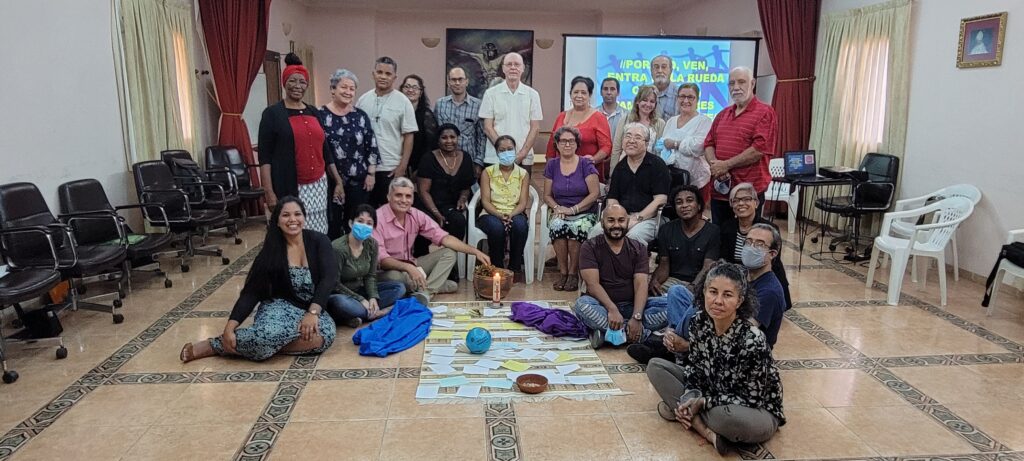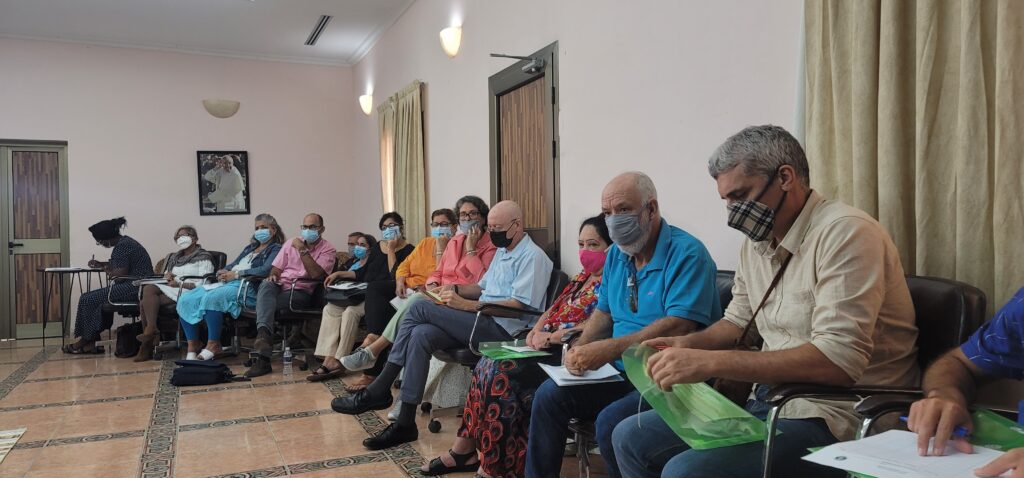Cuban Council of Churches Led Symposium: A Church that Renews its Mission in Times of Pandemic
Rolando Mauro Verdecia Ávila, General Coordinator, Area de Formation and Study, Cuban Council of Churches
This March 11 makes two years since the start of the Covid-19 pandemic in Cuba. This has been an extraordinarily complex and challenging time for Cubans, marked by fear, anxiety, sickness, scarcity of medicines and medical supplies, the collapse of hospitals and health centers, and the death of loved ones. We have also been affected by the loss of jobs, increased prices of essential products for daily life, and the Cuban peso’s progressive devaluation. Numerous internal and external factors have contributed to the pandemic that has made life more difficult and tested the resilience of the Cuban people.
In this context, the Cuban Churches and ecumenical movement have been equally impacted and challenged to find new ways of responding to the vocation and commitment to service as an essential part of the Christian mission. Therefore, they have become channels of solidarity, care, and support for Cuban families and communities throughout these two years.
To reflect on the challenges, opportunities, and lessons learned during the period, from theological and pastoral perspectives, the Cuban Council of Churches held the Symposium entitled “A Church that Renews its Mission in Times of Pandemic.” The Symposium was held on March 9th and 10th, 2022. This space is a part of the project Community Ecumenical Pastoral for the Unity of the Cuban Church, which the Area of Formation and Study of this institution has been implementing since 2020, with the support of the German cooperation agency Bread for the World.
The Symposium gathered representatives from Churches and ecumenical institutions throughout the country, who shared their experiences of support in solidarity with the people and health institutions in the most challenging days of the pandemic. They also reflected on how this complex context led them to develop alternatives and strategies to respond more effectively to the numerous challenges they had to face. These strategies included working in networks and the establishment or strengthening of alliances with other Cuban civil society organizations, which contributed to a more holistic nature and renovation of the mission and the promotion of ecumenical spirit and cooperation.
At the close of the Symposium, the participants identified the need to develop and/or deepen actions and initiatives geared towards care and accompaniment of families and communities, especially for managing grief for the loss of loved ones, friends, and neighbors due to Covid-19. In addition, to work on conflict mediation to promote reconciliation and cultivate a spirituality that fosters common values of the religions and beliefs that exist within the Cuban people. All of this is a coherent response to the Churches’ mission and the ecumenical movement in our country.

Este 11 de marzo se han cumplido dos años desde que comenzara la pandemia de Covid-19 en Cuba. Este ha sido un tiempo extraordinariamente complejo y desafiante para las cubanas y cubanos, marcado por el temor, la ansiedad, la enfermedad, el déficit de medicamentos e insumos médicos, el colapso de los hospitales y centros de salud, y la muerte de seres queridos. Pero también nos hemos visto afectados por la pérdida de empleos, el encarecimiento de los productos básicos para la vida cotidiana y la creciente devaluación monetaria. En todo este panorama han repercutido numerosos factores tanto de orden interno como externo, que han hecho más difícil la vida y puesto a prueba la capacidad de resistencia del pueblo cubano.
En medio de este contexto, las Iglesias y el movimiento ecuménico cubanos se han visto igualmente impactados y desafiados a encontrar nuevas maneras de responder a su vocación y compromiso de servicio, como parte integral de la misión cristiana. Es así que, durante estos dos años, se han convertido en canales de solidaridad, cuidado y acompañamiento para las familias y comunidades cubanas.
A fin de reflexionar desde la teología y la pastoral acerca de los desafíos, oportunidades y aprendizajes experimentados en el transcurso de este período, el Consejo de Iglesias de Cuba ha realizado los días 9 y 10 de marzo el Simposio “Una Iglesia que renueva su misión en tiempos de pandemia”. Este espacio forma parte de las acciones del proyecto Pastoral ecuménica comunitaria por la unidad de la Iglesia cubana, que desde 2020 viene implementando el Área de Formación y Estudio de esta institución, con el apoyo de la agencia alemana de cooperación Pan para el Mundo.
El Simposio reunió a representantes de Iglesias e instituciones ecuménicas de todo el país, quienes compartieron sus experiencias de apoyo solidario al pueblo y a las instituciones de salud en los días más difíciles de la pandemia. Asimismo, reflexionaron en torno a cómo este contexto tan complejo les llevó a desarrollar alternativas y estrategias para responder de manera más efectiva a los numerosos desafíos a que se tuvieron que enfrentar, como la articulación en redes y el establecimiento o fortalecimiento de alianzas con otras instituciones de la sociedad civil cubana, lo cual repercutió positivamente en una mayor integralidad y renovación de la misión, así como en la promoción del espíritu y la cooperación ecuménicos.
Al cierre del Simposio, las y los participantes identificaron la necesidad de desarrollar y/o profundizar acciones e iniciativas dirigidas al cuidado y el acompañamiento de las familias y comunidades, sobre todo en lo que se refiere al manejo del duelo por la pérdida de seres queridos, amigos y vecinos a causa de la Covid-19. De igual manera, trabajar en la mediación de conflictos para promover la reconciliación, y cultivar una espiritualidad que potencie los valores comunes de las religiones y creencias existentes en medio del pueblo cubano. Todo ello como respuesta coherente de la misión de las Iglesias y el movimiento ecuménico en nuestro país.

